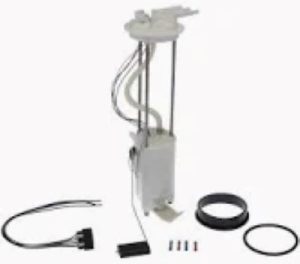Fuel pressure is one of the most important factors affecting how well a fuel pump performs. The fuel pump must maintain a steady pressure (40-60 PSI) in order to provide the engine with correct amount of fuel for a clean combustion. It needs pressure to a level with in 10 PSI of spec' or it will struggle at supplying enough fuel during events that need the most, causing lean and misfires, plus poor acceleration or even stalling. This is especially crucial in high-performance vehicles that demand more fuel.
An efficient fuel pump too. Fuel pump efficiency is usually rated by the amount of fuel delivered per the electrical power consumed. To provide an example, a high-performance pump that is rated to deliver 255 liters per hour might be designed operate at 90% efficiency. Reduced efficiency means greater electrical load on the vehicle systems, and maybe higher wear on things like the alternator. This inefficiency can raise fuel consumption even further and this results in directly impacting vehicle operating costs. For example, a 10% decrease in efficiency of a vehicle's fuel pump would amount to a significant hit on miles per gallon (MPG), resulting in higher fuel costs down the line.
Fuel quality plays a huge role in the effectiveness of the fuel pump as well. Impure fuel with water, dirt or other forensic pieces can clog the gas filter and abrasion constituent of domestic pump. In 2020, one of the largest car producers had to recall in excess of characterized scarcity due to failures from contaminated petrol that led to thousands if not millions fuel pump replacements. This reduces the risk somewhat that you become the victim of a dirty fuel filter, provided you do replace your fuel filter regularly and keep it fresh so cleaner fuel reaches the pump. An average fuel filter change runs from $50 to $100, but can stave off far more expensive fuel pump troubles.
The year and miles on the vehicle make a difference as well. While most fuel pumps are designed to last 100-150k miles, hard driving such as stop and go traffic or high speed driving can drastically decrease this lifespan. Your pump will typically still work, but its output begins to degrade slightly, suffering a direct hit on your volume consumption efficiency. Depending on the vehicle and driving conditions, some pumps may start to fail at around 80,000 miles.

Fuel Pump Performance in Temperature Extremes In high heat environments or under a lot of load such as towing, the pump may also overheat which can reduce efficiency and in some cases fail early. In cooler conditions the fuel is more viscous and means that the pump has to work far harder to maintain a given flow rate. In one application, for instance, a pump that is capable of delivering 200 liters per hour that initially appeared sufficient may only manages to deliver 180 liters per hour in extremely cold weather and could fail the performance benchmark.
Another major factor is electrical supplyaga! A steady 12-volt power feed is what runs the fuel pumps, and without it there will be issues. A failing battery or wiring can create additional resistance, which in return would decrease the voltage going to the pump leading to reduced pressure holding capability. If the voltage sags to 10 volts, for example, then the pump might only run at 70% of its efficiency, and this will have knock-on effects on overall engine performance. If the car is in good working order, it will not have these problems.
Learn more about Fuel Pump and how to optimize its performance by clicking here.